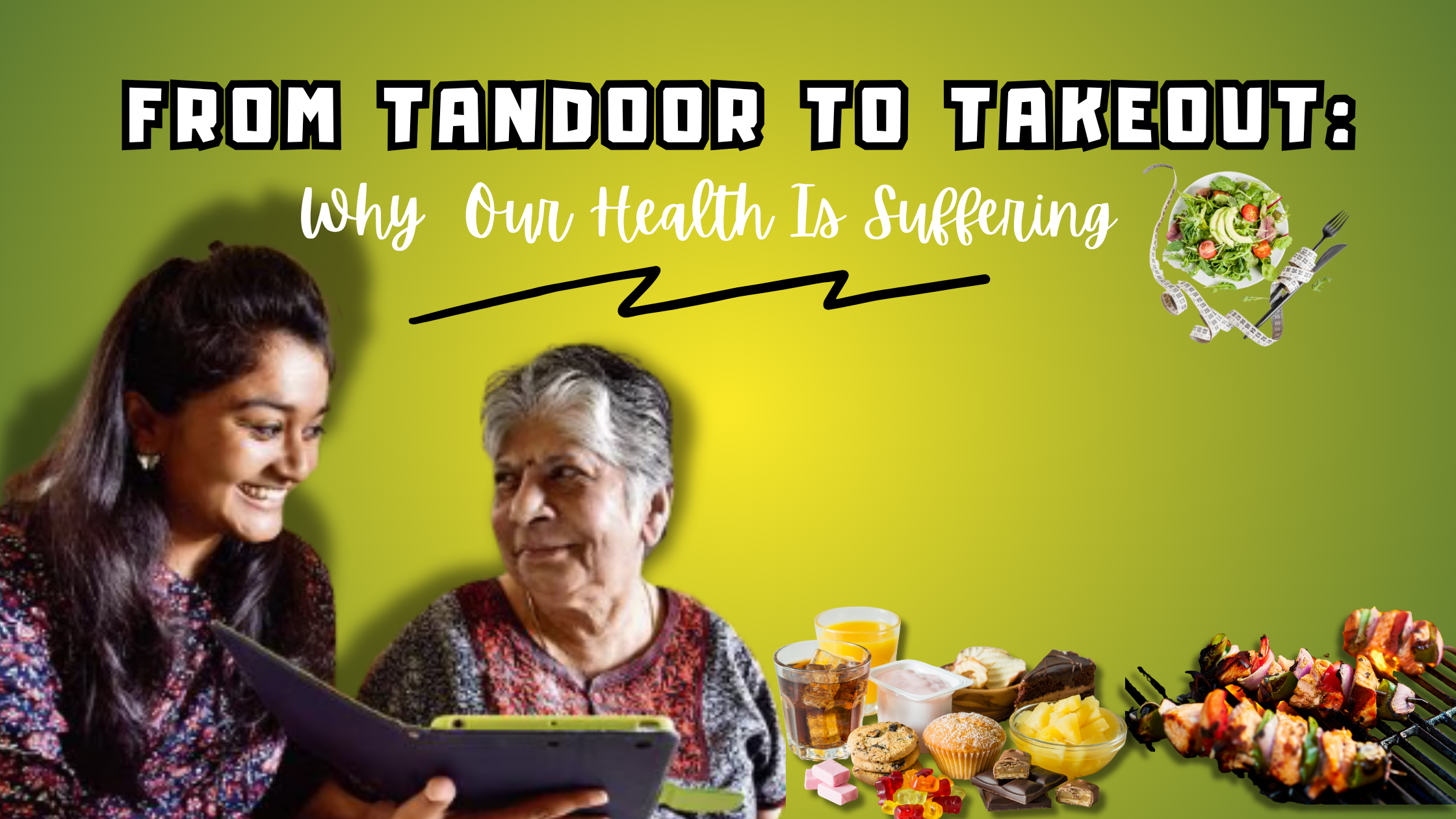Your 45 Day Journey from Guilt to Glow
<p><strong>From Guilt to Glow — The Nutrihealth Genie Way</strong></p><p><strong>Because this Diwali, you celebrated love. Now, it’s time to celebrate yourself.</strong></p><p>Let’s be honest — the past few weeks have been a blur of sweets, snacks, late-night parties, and that irresistible <em>“just one more bite”</em> feeling. The festive spirit took over — and it should. After all, Diwali is about joy, light, and connection.</p><p>But now that the fairy lights have dimmed and the boxes of leftover laddoos are finally empty, what’s left behind for many of us is… guilt, bloating, fatigue, and the sinking feeling of starting over <em>again</em>.</p><p>You’re not alone.</p><p> This post-Diwali slump hits almost everyone — especially those juggling work, home, and personal goals. And it’s not just about physical weight. It’s about emotional heaviness too — the disappointment of having “fallen off the track.”</p><p>But what if I told you this — <em>you didn’t fall off</em>.</p><p> You just lived a little. And now, it’s time to rise again — the healthy, sustainable way.</p><p><strong>Introducing: The Nutrihealth Genie 45-Day Diwali Detox & Weight Loss Combo</strong></p><p>Created by <strong>Dr. Nidhi Bhasin</strong> and <strong>Nutritionist Yumna Shamsi</strong>, this 45-day journey isn’t just about losing weight — it’s about <strong>rediscovering your balance</strong>.</p><p>At <strong>NutriHealth Genie</strong>, we believe in one simple philosophy:</p><p>“Health shouldn’t feel like punishment — it should feel like freedom.”</p><p>That’s why our programs focus on <strong>sustainable results</strong>, <strong>emotional wellbeing</strong>, and <strong>real food for real people</strong>.</p><p> No crash diets. No starvation. No giving up your favorite Indian meals.</p><p>Instead, it’s about re-learning the <em>art of eating</em>.</p><p><strong>Why Most Diets Fail (and Why This One Works)</strong></p><p>Most people try to fix their body without understanding it.</p><p> They go for quick fixes — cutting out carbs, skipping meals, or trying fancy detox teas — but end up right where they started.</p><p>At <strong>Nutrihealth Genie</strong>, we take a completely different approach:</p><p>1️⃣ <strong>We listen to your body first.</strong></p><p> Our process starts with a <em>blood report–based consultation</em> with <strong>Dr. Nidhi Bhasin</strong>, who helps identify hidden issues like hormonal imbalances, thyroid, PCOD, or nutritional deficiencies.</p><p>2️⃣ <strong>We design your plan around you.</strong></p><p> Every body is unique — so is every meal plan. <strong>Nutritionist Yumna Shamsi</strong> curates easy-to-follow, home-style recipes using local ingredients. No imported powders or unrealistic restrictions — just smart eating that fits your lifestyle.</p><p>3️⃣ <strong>We add movement — not punishment.</strong></p><p> Our 20-20-20-20 walking plan is a simple, structured way to boost metabolism without gym stress.</p><p> (20 mins walk after breakfast, lunch, snacks, and dinner — yes, it works wonders!)</p><p>4️⃣ <strong>We support you emotionally.</strong></p><p> Because health is not just physical — it’s deeply emotional. With <em>real-time WhatsApp support</em> and <em>weekly video calls</em>, you’ll always have someone cheering you on, answering your doubts, and keeping you accountable.</p><p><strong>The Science of Sustainable Weight Loss</strong></p><p>Did you know your body actually <em>wants</em> to be healthy?</p><p> It’s constantly trying to achieve balance — we just need to stop fighting it.</p><p>Sustainable weight loss is about improving your metabolism, not torturing it.</p><p> It’s about nourishing, not depriving.</p><p> And it’s about patience — not perfection.</p><p>At <strong>Nutrihealth Genie</strong>, our clients don’t just see weight loss — they see transformation:</p><p>🌸 Clearer skin</p><p> 💪 Better digestion</p><p> 💤 Improved sleep</p><p> ✨ Increased energy</p><p> 💖 And yes, thicker, stronger hair (thanks to our targeted supplement guidance!)</p><p>We call it the <strong>Glow-Up Effect</strong> — because when your body feels supported, it shines back.</p><p><strong>Real People. Real Results. Real Happiness.</strong></p><p>Meet Sneha, a corporate manager who joined Nutrihealth Genie after struggling with post-Diwali fatigue and constant bloating.</p><p>“I’d tried everything — keto, intermittent fasting, even skipping meals — but nothing worked long-term. This plan changed everything. I lost 6 kilos in 45 days, but more than that, I gained energy, focus, and confidence. It wasn’t a diet; it was self-care.”</p><p>And then there’s Aditi, a new mom who just wanted to feel like herself again.</p><p>“The best part? I could eat my regular home food! The recipes were so easy to follow. The WhatsApp support made me feel like someone truly cared about my progress.”</p><p>These are not isolated stories — they’re proof that <strong>healthy weight loss doesn’t have to be hard, expensive, or painful.</strong></p><p>It can be joyful. Empowering. And yes — <em>delicious</em>.</p><p><strong>The Emotional Side of Weight Loss</strong></p><p>We often forget that every weight loss story begins with an emotion — frustration, guilt, or a longing to feel better in our own skin.</p><p> But somewhere along the way, most programs strip that emotion away and replace it with rules.</p><p>At <strong>Nutrihealth Genie</strong>, we bring the emotion back — compassion, patience, and joy.</p><p> We teach you how to listen to your hunger, how to nourish without guilt, and how to love the process, not dread it.</p><p>Because you don’t just need a plan — you need a partner.</p><p> Someone who understands your struggles, your work-life chaos, and your need for balance.</p><p>That’s where <strong>Dr. Nidhi Bhasin</strong> and <strong>Nutritionist Yumna Shamsi</strong> come in — blending medical science, nutrition, and empathy into one transformative experience.</p><p><strong>Your 45-Day Transformation Awaits</strong></p><p> <strong>Program Starts:</strong> 15th November</p><p> <strong>Duration:</strong> 45 Days</p><p> <strong>Includes:</strong></p><ol><li data-list="bullet" class="ql-indent-1"><span class="ql-ui" contenteditable="false"></span>4 personalized video consultations</li><li data-list="bullet" class="ql-indent-1"><span class="ql-ui" contenteditable="false"></span>WhatsApp support throughout</li><li data-list="bullet" class="ql-indent-1"><span class="ql-ui" contenteditable="false"></span>Blood report–based diet planning</li><li data-list="bullet" class="ql-indent-1"><span class="ql-ui" contenteditable="false"></span>Supplement recommendations for better hair & metabolism</li><li data-list="bullet" class="ql-indent-1"><span class="ql-ui" contenteditable="false"></span>Easy home recipes — no crash diets</li><li data-list="bullet" class="ql-indent-1"><span class="ql-ui" contenteditable="false"></span>Sustainable weight loss (say goodbye to rebound weight!)</li></ol><p><strong>Limited Entries: Only 10 Spots Available</strong></p><p> l<strong>ast Date to Register: 13th November</strong></p><p> <strong>Pay Only ₹3999 for the Complete 45-Day Plan</strong></p><p>You’ve celebrated Diwali with love. Now celebrate yourself — with care.</p><p> Before the year ends, give yourself the chance to glow again — from within.</p><p>Because your health isn’t a luxury. It’s your foundation.</p><p> And when you take care of it, everything else — your confidence, energy, and happiness — follows.</p><p><strong>Think Health. Think Nutrihealth Genie.</strong> </p><p>Let’s do this <em>together</em>.</p><p>#DiwaliDetox #SustainableWeightLoss #ThinkHealthThinkNutriHealthGenie #HealthyIndia #PostDiwaliReset #WomenWellness #DoctorLedWeightLoss #CorporateHealth #NutritionMatters #MindfulEating #NoCrashDieting #BalancedLiving #HealthyHabits</p><p><br></p>
Show More ..










